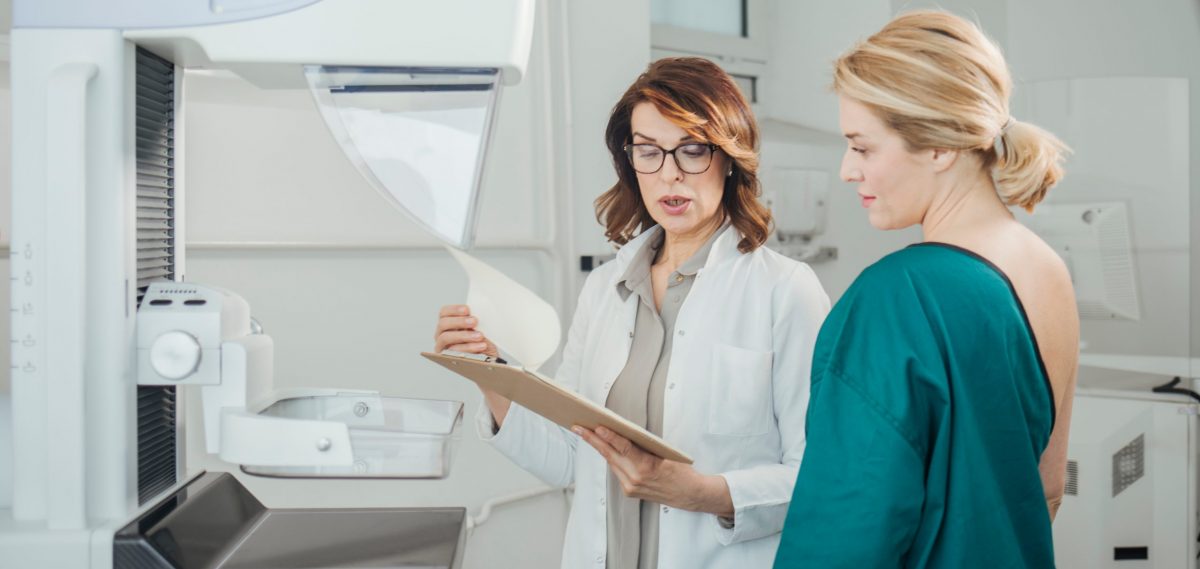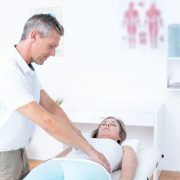
For many women, taking care of their breasts is a top health concern. More than 200,000 women are newly diagnosed with breast cancer, every year, making it the second most common type of cancer in the U.S. after skin cancer. Thankfully, the guidelines for how to improve breast health are not all that different from what you might do to take care of yourself in general, with a few added precautions.
Keeping your breasts healthy begins with compassionate, high-quality healthcare. The experienced Breast Care providers of EmergeOrtho—Triangle Region work closely with North Carolina Specialty Hospital to provide fast, accurate diagnoses and treatment plans for all women. They are with you every step of the way, and are committed to helping you Emerge Stronger. Healthier. Better.
Let the Breast Care Experts of EmergeOrtho—Triangle Region Show You How to Improve Breast Health
Although there are risk factors for developing breast cancer that women cannot control, including age, genetics, reproductive history, and breast density, there are plenty of factors they can control.
- Manage Your Weight. Women with a higher Body Mass Index (BMI) have an increased risk of developing more advanced breast cancer. Researchers believe that extra body fat exposes the breast tissue to more estrogen, stimulating and supporting cancer cell growth.
- Commit to Exercise. Working out for at least 30 minutes four to five times a week can mean a 25% reduction in breast cancer risk. Exercise helps you maintain a healthy weight and supports a healthy immune system.
- Eat a Healthy Diet. Filling up on healthy, nutrient-rich foods with known cancer-fighting properties can also improve breast health. Fruits and vegetables (including leafy greens) and fish, nuts, and seeds rich in Omega-3 fatty acids are also linked to reduced cancer risk. Limit intake of junk food, including refined carbs and sugars to maintain your weight and lower your risk.
- Limit Alcohol and Quit Smoking. Excessive drinking—meaning more than one drink per day—can increase breast cancer risk. And if you smoke, it is a great time to quit.
- Take Your Vitamins. Research suggests that not getting enough vitamin D can increase cancer risk. Although the sun is the best source of vitamin D, your doctor may recommend a supplement to boost your levels.
Working with your healthcare provider can also support better breast health. The United States Preventive Services Task Force (USPSTF) recommends women talk to their doctors about breast cancer screenings starting at age 40. Although they do not recommend regular screening mammograms until age 50, your doctor may schedule a mammogram any time after age 40.
Mammograms are a type of X-ray designed to find abnormalities in the breast tissue that might not be seen or felt. Women who are at a higher risk for breast cancer, due to personal or family history, may need a breast MRI as well for a more detailed picture.
Clinical and breast self-exams are also part of maintaining healthy breasts. Examine your own breasts every month, watching for lumps, changes in size or texture, and pain. Changes to how your breasts normally look and feel can be a sign of disease.
Additional Breast Care Tips to Protect Your Health
Maintaining a healthy lifestyle and regular screenings top the list of ways to improve breast health, but you can reduce risk with a few additional recommendations:
- Try to Breastfeed when Possible. The CDC recommends women breastfeed when possible. Women who breastfeed for 12 months or longer have a 26% lower risk of developing breast cancer over their lifetime.
- Keep Your Phone Out of Your Bra. Storing your cell phone in your bra for easy access is convenient, but it could be linked to health risks. Although there has not been a conclusive study proving that keeping your phone next to your breast is dangerous, doctors recommend using your pocket or purse instead for safety.
Two things you do not need to worry about: bras and deodorant. Despite rumors, there is no evidence that wearing any type of bra, or wearing a bra overnight, increases the risk of breast cancer. And, the National Cancer Institute says there is no connection between the use of antiperspirants and an increased risk of cancer.
The Breast Care specialists at EmergeOrtho—Triangle Region are here to support your breast health. We are fortunate to have Dr. Kathryn Baerman, with her unparalleled expertise in both benign and malignant breast disease, coordinating our compassionate team of providers, which includes oncologists and cancer rehabilitation specialists. Together, they help women of all ages with comprehensive treatment plans for all breast diseases. To learn more, self-schedule an appointment now. Or, call us any time at (919) 220-5255.







